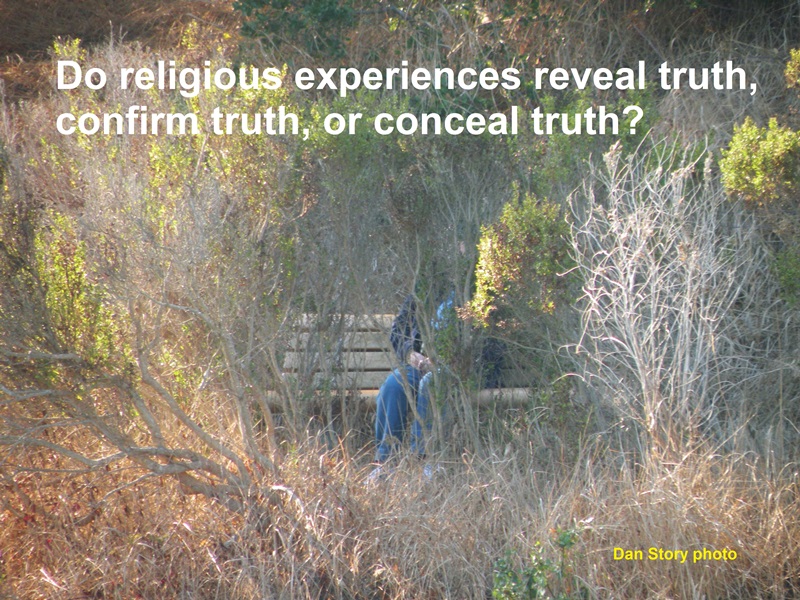
Part Four: How Does Secular Science Attempt to Disprove God’s Existence?
Let me begin by saying that science is not atheistic—in fact, it provides compelling, unarguable evidence that God does exist. But the foundational assumption of a secular view of science (philosophical naturalism—see part two for a definition) does attempt to argue against God’s existence. Here’s what wrong with this.
God and naturalism are mutually exclusive; if a creator God exists, naturalism as the foundation of secular science can’t be true because it denies anything supernatural. So, it’s in the interest (the very survival) of naturalism to deny God’s existence and other religious truth-claims. The primary way it attempts to do this is by promoting science as the only reliable source of truth. In other words, if there is no transcendent, supernatural Being that reveals spiritual truth, it leaves only secular science to explain reality as it is. This philosophy is called “Scientism,” and refuting it is our apologetic response.
Scientism
According to Scientism, nothing can be considered true—factual—unless it passes through the filter of scientific testing. If something can’t be explained by modern science—that is, can’t be proven scientifically—it can’t be considered true or even rational. Naturalists usually say something like this: “You can’t know for sure if something is true unless you can prove it scientifically.”
The most serious fallout from this dogma is that it elevates scientific truth above religious truth. On the one hand, science is supposedly objective knowledge attained by impartial fact-finding, particularly observation and experimentation. On the other hand, allegedly, religion is said to fall within the category of things that cannot be known for sure because they can’t be demonstrated scientifically: observed in nature or tested in a lab. Religious truth is said to be subjective, merely feelings and experiences. It’s only faith, values, and beliefs, not objective facts and knowledge. In short, science is fact and religion fiction.
The fact is this claim is patently false. Scriptures contain much factual data in science, psychology, human behavior, ethical principles, history, and more. Furthermore, the statement, “You can’t know for sure if something is true unless you can prove it scientifically,” is inconsistent and contradictory. It is a philosophical statement about science—not a scientific statement. Why? Because the statement can’t be proven scientifically. It’s an assumption that nothing can be truthful outside of scientific testing, which itself can’t be tested scientifically! Thus, in terms of spiritual truth, the claim is an inconsistent, irrational, meaningless statement.
Now think about this. Why should any thinking person believe truth and knowledge are confined only to the realm of empirical science? There is no logical, philosophical, or scientific reason not to recognize that truth and knowledge can reside in the unseen, spiritual world as well as in the physical, natural world. In short, the secular view of science, grounded in scientism, has nothing legitimate to say about religious truth. When it attempts to do so, it falsifies itself. ©
By the way, I have two chapters on modern evidence for creation vs. evolution in my book, Defending Your Faith: Reliable Answers for a New Generation of Seekers and Skeptics, Revised and Expanded (Kregel Publications, 2019)
Next week we’ll look at specific apologetic evidence demonstrating why Scientism is a false and deceitful argument against religious truth.
You make a noteworthy point in easy-to-understand language, that logic-based science fails its own standard with sweeping statements of belief about itself. It’s curious how scientists offer “precise” data (truth) based on a formula containing multiple variables. The scientific method itself is based on constancy plus one variable, proving that any change is the result of the known variable.
Thanks for your comments, Lynn. I wrote an online article for the Christian Research Journal, published May 13th, which you may find interesting. I explain the Scientific Method as confirming truth for Christianity and how it is used in various supporting areas of knowledge: “Can Apologetics Go Beyond Evidence for Christianity to “Proof” of Christianity?”